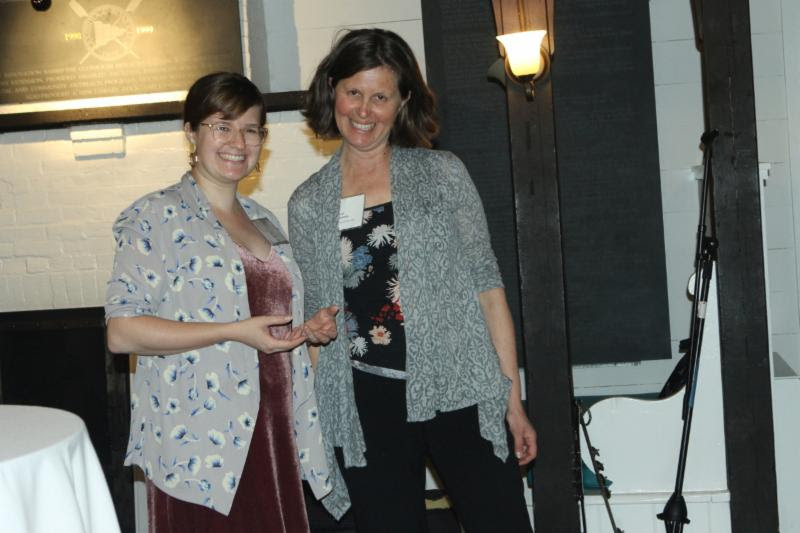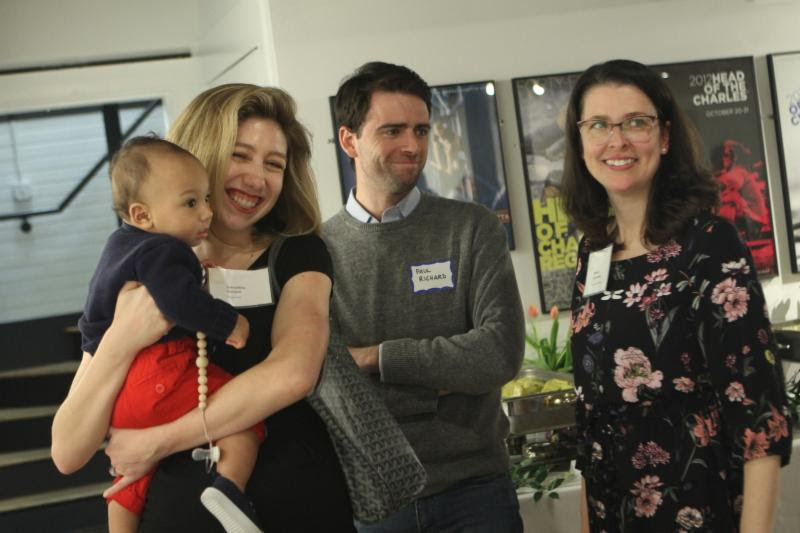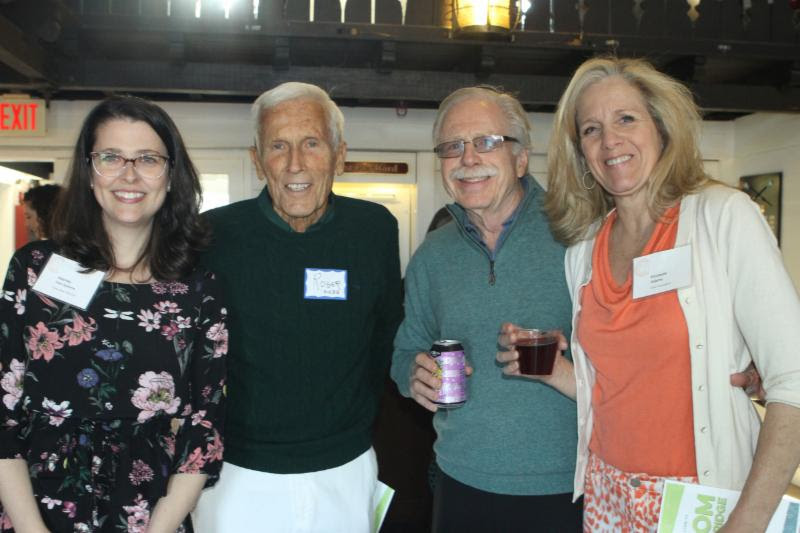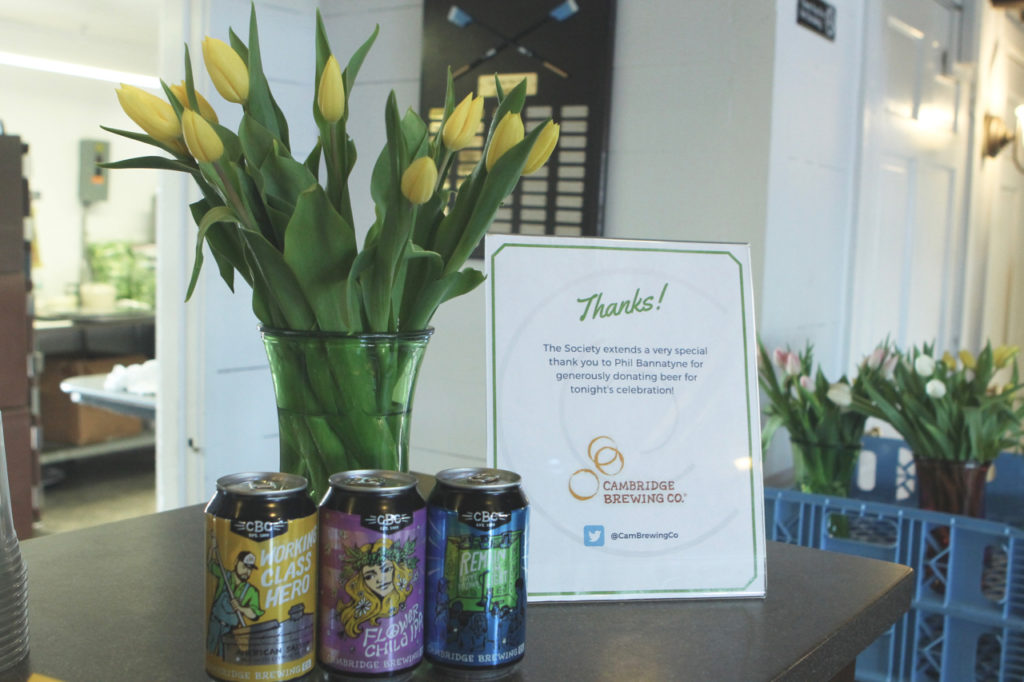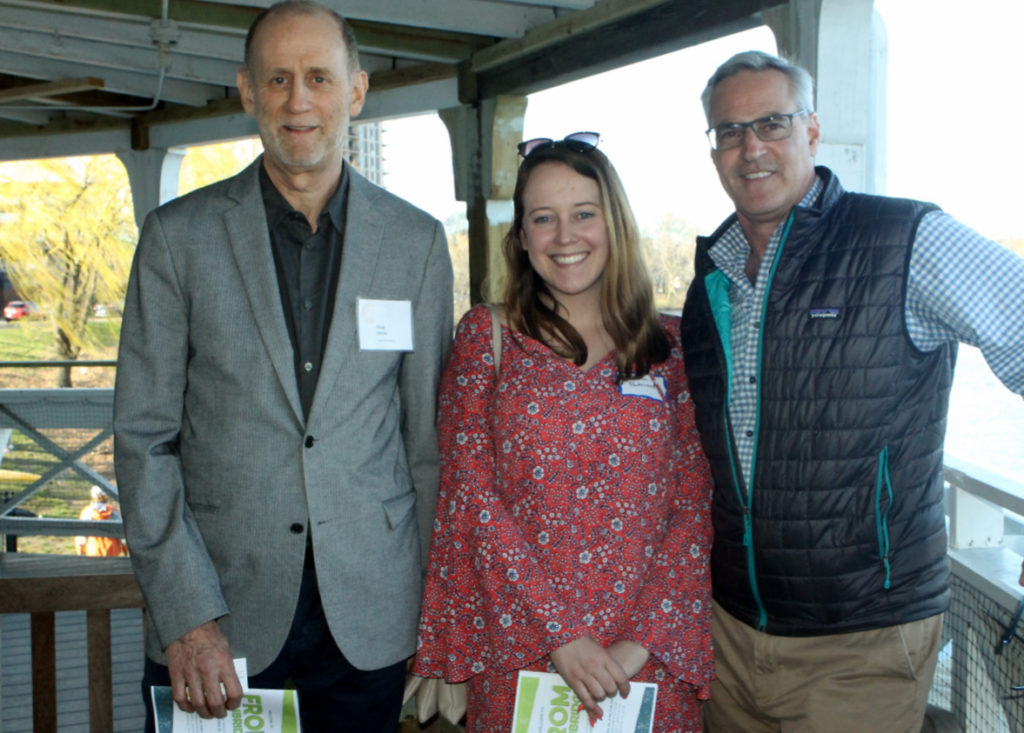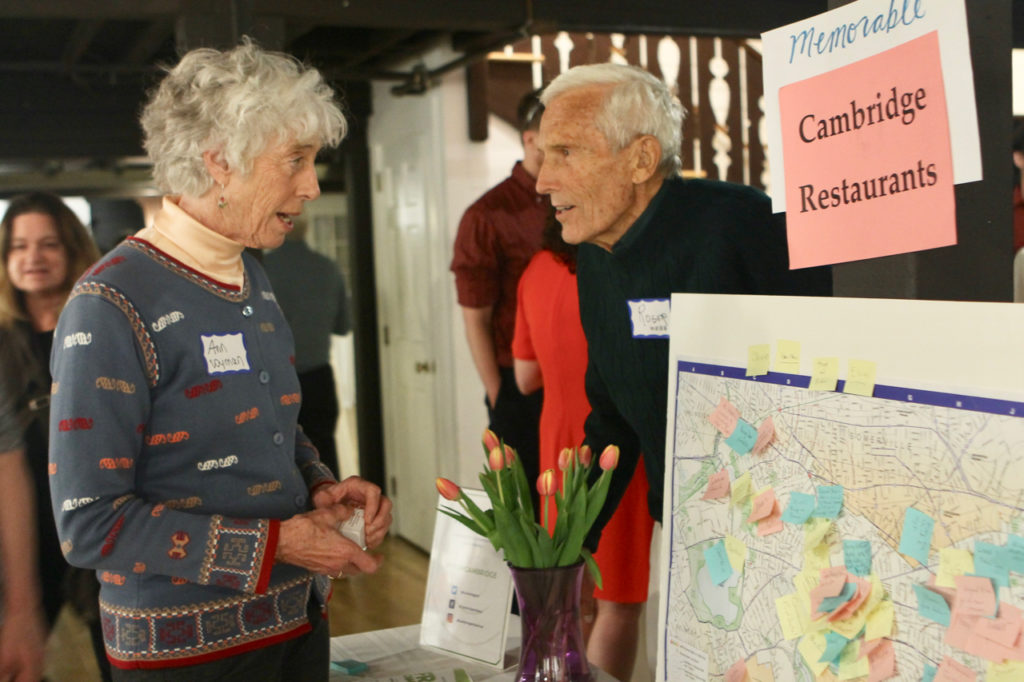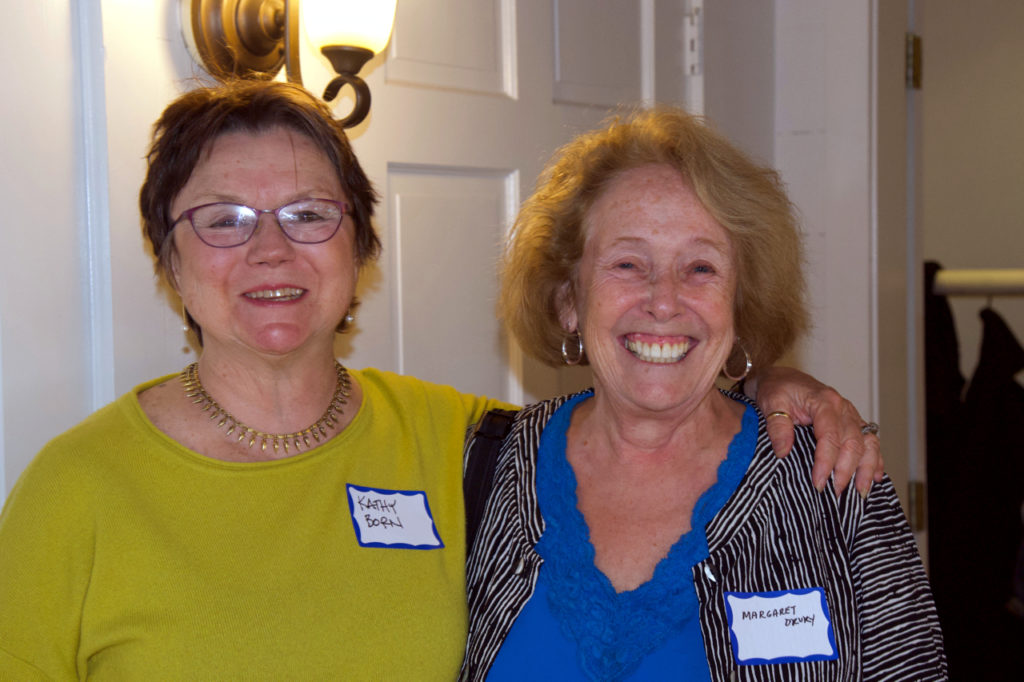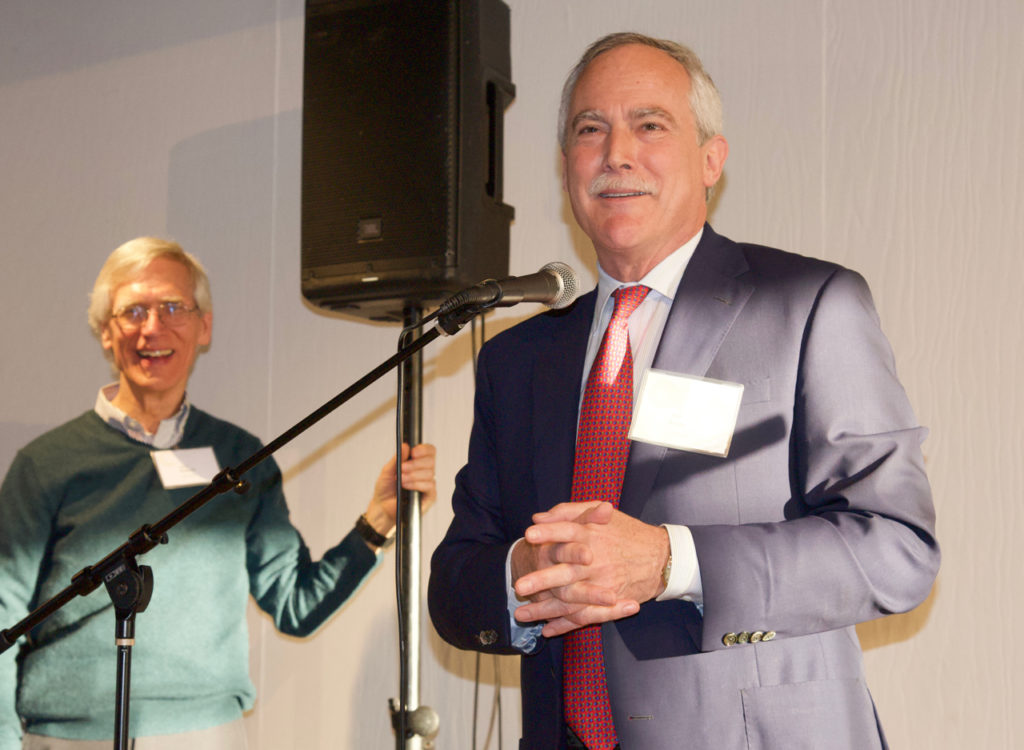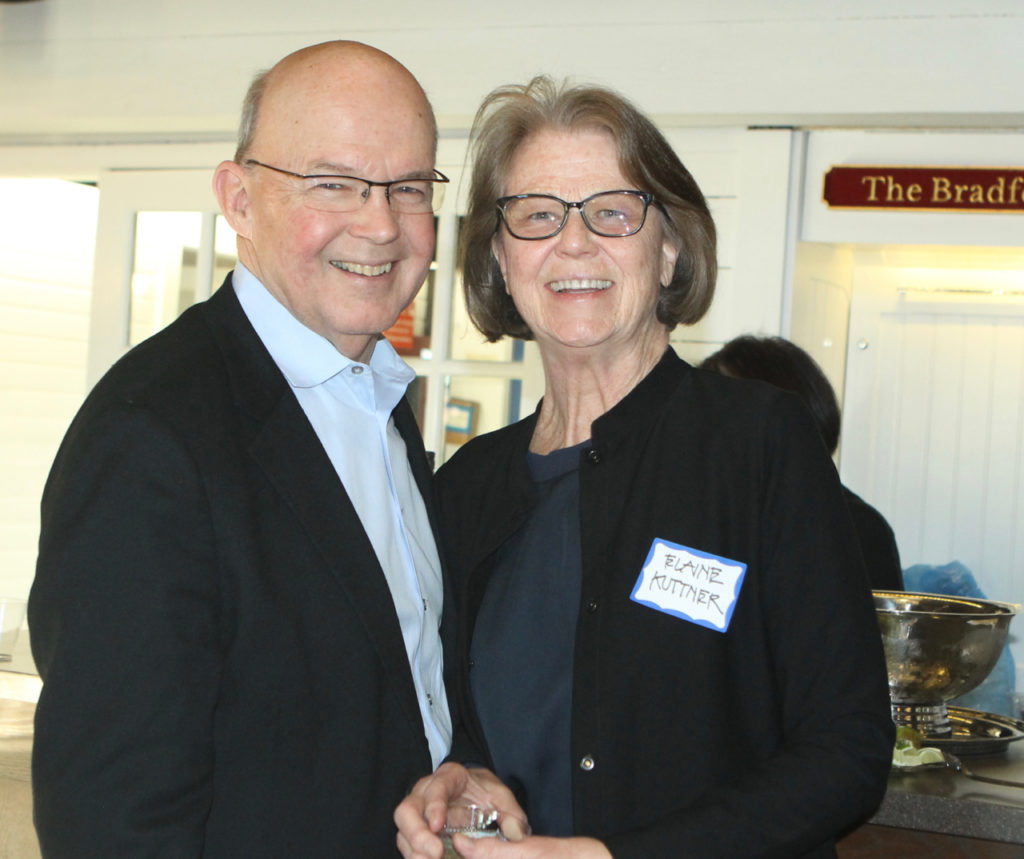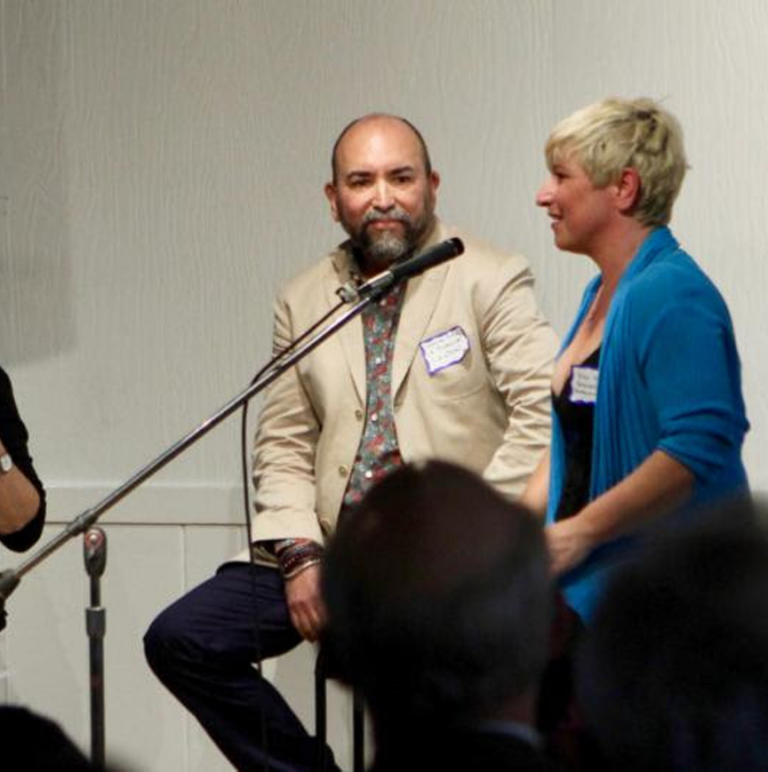
Recap of 04/26/18 “From Cambridge,” A Benefit for the Cambridge Historical Society
Mon April 7, 2025
Thank you to everyone who attended the Society’s “From Cambridge” Spring Benefit. It was a festive evening with old and new friends, delicious food and great music. Spending a mild spring evening together, with the Boat Club porch doors open, and the Charles River flowing by, was a welcome treat after a long winter.
The evening’s program was moderated by Merry (Corky) White, local food anthropologist; and featured Kari Kuelzer, owner of Grendel’s Den, Harvard Square; and Hector Piña, co-owner of La Fábrica Central, Central Square. It was a conversation about the past and present of Cambridge foodways, and each of our speaker’s personal experiences in the local food world, as part of our year of asking “Where Cambridge is From?”.
For those who missed the event or want a refresher, here are some highlights of the conversation:
Merry came to Cambridge at a time when it was starting to be trendy to eat “international” foods. This was the late 1950s/early 1960s. Later, to make ends meet as a graduate student, Corky built a catering business in Cambridge; using “ethnic” recipes allowed her to hide her inexperience as a chef by taking advantage of the Harvard intelligentsia’s lack of sophistication when it came to non-Anglo, non-beige cuisines and ingredients. Both Julia Child and Savenor’s Market appeared in Merry’s story about modifying and renaming a scorched Ukrainian cabbage-and-pork stew as “Smoked Borscht.”
Merry’s cookbook, “Cooking for Crowds,” published in 1974; drew from her catering experiences using more colorful and varied foods and recipes; and contributed to a new style of food-entertaining at home. It remains in print today. Merry contends that there has never been a single Cambridge, everything here is plural, and neighborhood-based, and that we’ve never had a local cuisine. She also discussed “Camberville,” a new culinary/cultural urban space, now home to destination restaurants.
Kari’s restaurant story is about carrying a beloved family legacy and Harvard Square institution forward. “Cambridge” as a set of ideas, or progressive values plays a lead role, too. Kari grew up literally on the restaurant floor of Grendel’s Den. She’s a proud product of Cambridge’s public and private schools. The decision to return to Cambridge from California as a young adult was twofold: to allow for the continuation of Grendel’s Den after her mother’s death, and to raise her son to be “from Cambridge.” To Kari, to raise a kid in Cambridge means to raise someone who will have facility and comfort with diversity, and confidence in “accessing” the world. It’s a set of traits, or a way of being that she can instantly recognize.
In the early 1970s Kari’s parents Herbert and Sue Kuelzer opened Grendel’s Den as one of the first affordable, casual, gourmet restaurants in Harvard Square. It featured “international” items on the menu, using some of the “ethnic” ingredients Merry talked about. Today it lives on as an institution and a tourist destination, and as one of the remaining affordable restaurants in Harvard Square that isn’t a take-out place. One audience member remembered tasting her first quinoa dish there, long before quinoa became a national trend. Another thanked Kari for being a perennial employer of local youth.
As he tells it, Hector’s restaurant story is an immigrant’s story. His mindset was to look for opportunities, and to create what his new Boston home lacked. He arrived in Boston from the Dominican Republic in the mid-1980s. After some years at various pay-the-bills jobs, the opportunity to partner with a friend on a tiny restaurant launched him in the restaurant business. He opened his own Dominican restaurant, Merengue, in Boston in the early 1990s—now approaching 25 years ago. Here he created a Latin-Caribbean dining experience, and the Dominican-inspired menu that Boston was missing. The second, Vejigantes opened in the South End in 2012. Their third, Doña Habana—the first Latin restaurant to open in a Boston hotel—opened in 2016.
La Fábrica Central restaurant and live music venue came right after, in early 2017. Hector, along with his wife and business partner Nivia Piña, and their partner Dennis Benzan, made their move when the right Cambridge space came available in Central Square. So far, Hector says the Cambridge patrons stand out from their Boston counterparts for the lively conversations and varied and diverse dining groups; for their willingness to wait an hour for a table; and for the clientele’s dedication to online restaurant reviewing on apps like Yelp. Hector shared that his family will soon begin another Cambridge relationship, when his son starts at Harvard Law this fall.
Audience questions touched on extremely high commercial rents, millenials’ vs boomers’ opposing restaurant noise level preferences, how small business insurance premiums go up after each extreme weather/climate change event, even when not directly hit, like with Hurricane Sandy, and the local politics around liquor licenses.

